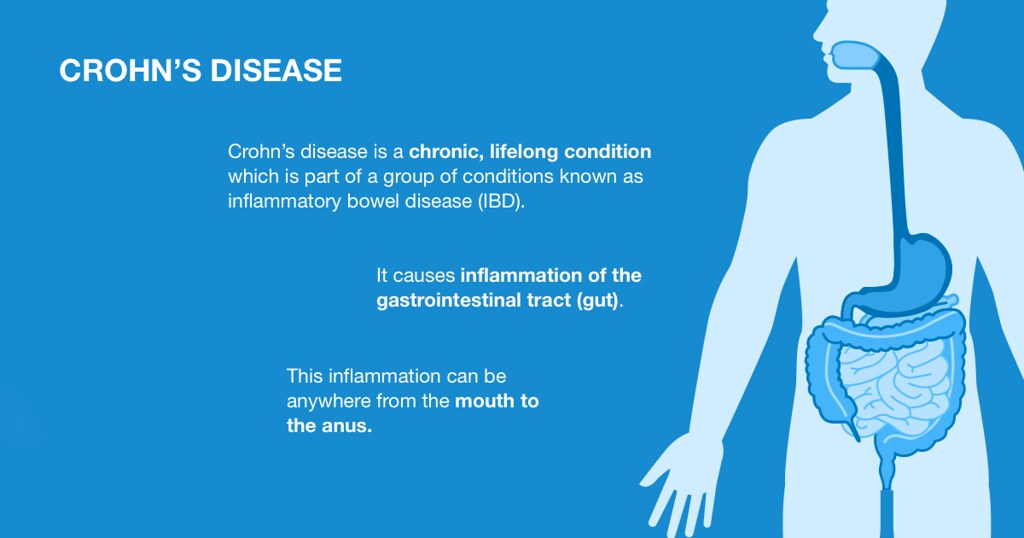Living with Crohn’s disease can be challenging, requiring careful consideration of medications and treatments. If you’re exploring treatment options for diabetes, you may have come across Ozempic. But can you take Ozempic with Crohn’s disease?

In this extensive guide, we will explore the relationship between Ozempic and Crohn’s disease. Our aim is to equip you with the necessary information to make informed decisions about your health.
Understanding Ozempic
Before we explore its interactions with Crohn’s disease, let’s gain a deeper understanding of what Ozempic is and how it works. Ozempic is a diabetes medication prescribed to manage blood sugar levels in type 2 diabetes . It belongs to a class of drugs called GLP-1 receptor agonists and works by stimulating the release of insulin, reducing glucagon secretion, and slowing down gastric emptying.
Understanding Crohn’s Disease

Crohn’s disease is a chronic inflammatory bowel disease characterized by inflammation in the digestive tract, leading to various symptoms.It can cause symptoms such as abdominal pain, diarrhea, weight loss, and fatigue. The disease can also lead to complications such as strictures, fistulas, and malnutrition.
Can You Take Ozempic with Crohn’s Disease?
Now that we have an overview of both Ozempic and Crohn’s disease, let’s explore their potential interactions. Currently, there are no known or documented interactions between Ozempic and Crohn’s disease. This means that individuals with Crohn’s disease can safely take Ozempic for diabetes management without any major concerns.
However, it is important to note that every individual is different and may have varying responses to medications. If you have Crohn’s disease and are considering taking Ozempic, it is crucial to consult with your doctor. They can assess your specific case and provide personalized recommendations.

Ozempic and Crohn’s Disease: Potential Benefits
While there are no reported interactions between Crohn’s and Ozempic, there may be potential benefits for individuals with both conditions. Some studies have shown that GLP-1 receptor agonists like Ozempic may have anti-inflammatory effects on the digestive tract, which could potentially benefit those with Crohn’s disease.
Additionally, managing diabetes effectively can help improve overall health and potentially prevent complications associated with Crohn’s disease. This underscores the importance of discussing treatment options with your doctor and finding a comprehensive plan that addresses both conditions.
More Articles Here
By: HADID
Ozempic for Crohn’s Disease: Things to Consider
Although Ozempic may have potential benefits for individuals with this disease, there are still some things to consider. As with any medication, it is important to be aware of the potential side effects and risks associated with taking Ozempic.
Some common side effects of Ozempic include gastrointestinal issues like stomach pain and other gastrointestinal symptoms. In rare cases, more serious side effects such as pancreatitis and kidney problems may occur. It is important to discuss any potential risks with your doctor before starting treatment.

Interactions with Crohn’s Disease
When considering any medication, it’s crucial to understand how it may interact with other conditions you have, such as Crohn’s disease. While Ozempic primarily targets diabetes management, it’s important to be aware of potential effects on disease symptoms. As each individual’s experience may vary, it’s best to consult with your healthcare provider. They will consider your specific condition, medical history, and the risks and benefits of using Ozempic.
Is Ozempic Safe for Long Term Use in Crohn’s Disease?
As with any medication, Ozempic carries potential risks and side effects. Common side effects of Ozempic include nausea, vomiting, diarrhea, and constipation. For individuals with Crohn’s disease, it’s necessary to be mindful of how these side effects may impact their overall well-being. Additionally, certain side effects may overlap with Crohn’s disease symptoms, making it essential to discuss any concerns with your healthcare provider.
Medications for Crohn’s Disease

Various medications, including anti-inflammatory drugs like mesalamine, corticosteroids, immunomodulators (e.g., azathioprine) which depress immune system, biologics (such as infliximab), antibiotics, and newer options like JAK inhibitors (e.g., tofacitinib), are used to manage this disease.
Treatment plans are personalized based on individual needs and the specific characteristics of the disease, with healthcare providers guiding patients to find the most effective options.
Can You take Ozempic if You have Crohn’s Disease
Althou as we discussed earlier about its beneficial affects in IBD we can not entirely depend on it in inflammatory bowel conditions like chronic IBD. Proper medications should be taken as given above recommended by doctor and not ozempic which controls blood sugar levels.
Patient Testimonials
Real-life experiences provide valuable insights into the impact of medications on individuals with Crohn’s disease. Patient testimonials can offer a glimpse into the challenges and benefits of using Ozempic while managing Crohn’s disease. It’s important to remember that everyone’s experience is unique, and individual responses to medications can vary.
Expert Opinions
To provide a comprehensive view, we sought insights from medical professionals on the topic. Their expertise sheds light on the considerations, potential risks, and benefits of using Ozempic for individuals with Crohn’s disease. Remember, their opinions can guide your decision-making process, but individualized advice from your own healthcare provider is crucial.
Conclusion
Navigating the complexities of managing both Crohn’s disease and diabetes requires careful consideration and expert guidance. While Ozempic may offer benefits for diabetes management, it’s essential to consult with your healthcare provider to evaluate its suitability for your specific situation. They will consider your medical history, the severity of your Crohn’s disease, and any potential risks before making a recommendation.
In conclusion, the decision to take Ozempic with Crohn’s disease should be made in consultation with your healthcare provider. Together, you can assess the potential benefits, risks, and interactions, ensuring the best possible outcome for your overall health. Remember, your healthcare provider is your trusted partner in managing your conditions and guiding your treatment decisions.

1 thought on “Can You Take Ozempic with Crohn’s Disease? A Complete Guide”